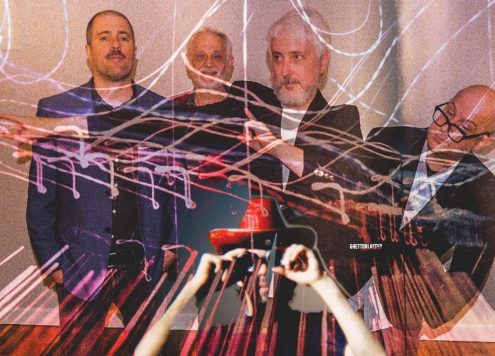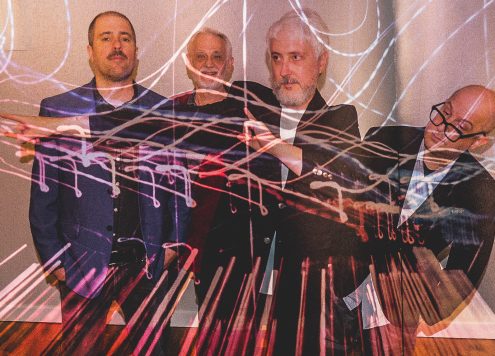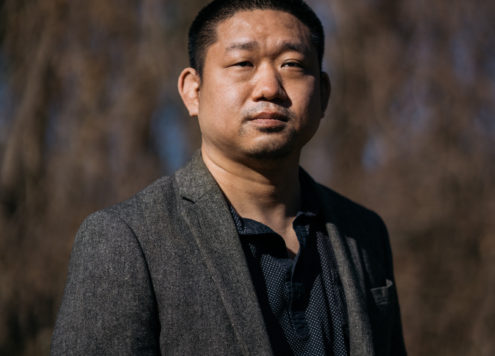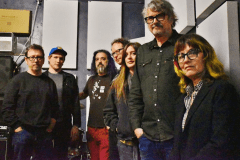One of the most poignant and powerful voices today, Korean-American artist Andrew Choi has announced his fifth album as St. Lenox, Ten Modern American Work Songs due out October 25 via Don Giovanni Records / Anyway Records. With his singular combination of tight pop melodies, topical and confessional lyrics, and his cathartic vocal howl, the progressive, queer artist harnesses his life experience to raise questions about the definition of success and the journey through higher education and the American workforce.
The lead single of Ten Modern American Work Songs, “Rudy,” is a soulful ballad about a career-driven protagonist, envious of a classmate who has prioritized family over professional ambition. The tradeoffs between ambition and domesticity are playfully reimagined in the accompanying official video, “How to Get a Table at Tatiana”, in which the protagonist laments how difficult it is to get restaurant reservations at Tatiana, the New York Times No. 1 Restaurant in New York City, and attempts to work on his home cooking skills as a coping mechanism.
Like many Millennials and Gen-Xers, Andrew grew up with the narrative that quality work and education would eventually lead to personal salvation and provide a path to upward mobility. To that end, Andrew became a pillar of achievement: flying to New York City to study violin at Julliard on weekends as a teenager, graduating magna cum laude from Princeton University, earning a PhD in philosophy in his 30s, attending law school at NYU Law and working in Manhattan at a law firm, while simultaneously grappling with the struggles of modern working life: low wages, massive student debt, and burnout. This tremendous amount of experience—and all of the observations therein—is channeled into Ten Modern American Work Songs, which is dedicated to the NYU Law Class of 2014 on its 10th anniversary. “I want the record to be a snapshot of work life in modern times,” he says. “I try my best in these records to provide a kind of realism. I want the listener to come away with a vivid feeling of what it’s like to work these days. Because ultimately that kind of realism is motivating to people on an ethical and political level.
Anyone who has ever paused to wonder “What’s this all for?” as they climb the next rung in capitalist America will find solace in these stories, which, taken together, paint an evocative portrait of 21st century work life.
Photo Courtesy: Aaron Cansler











Social Media